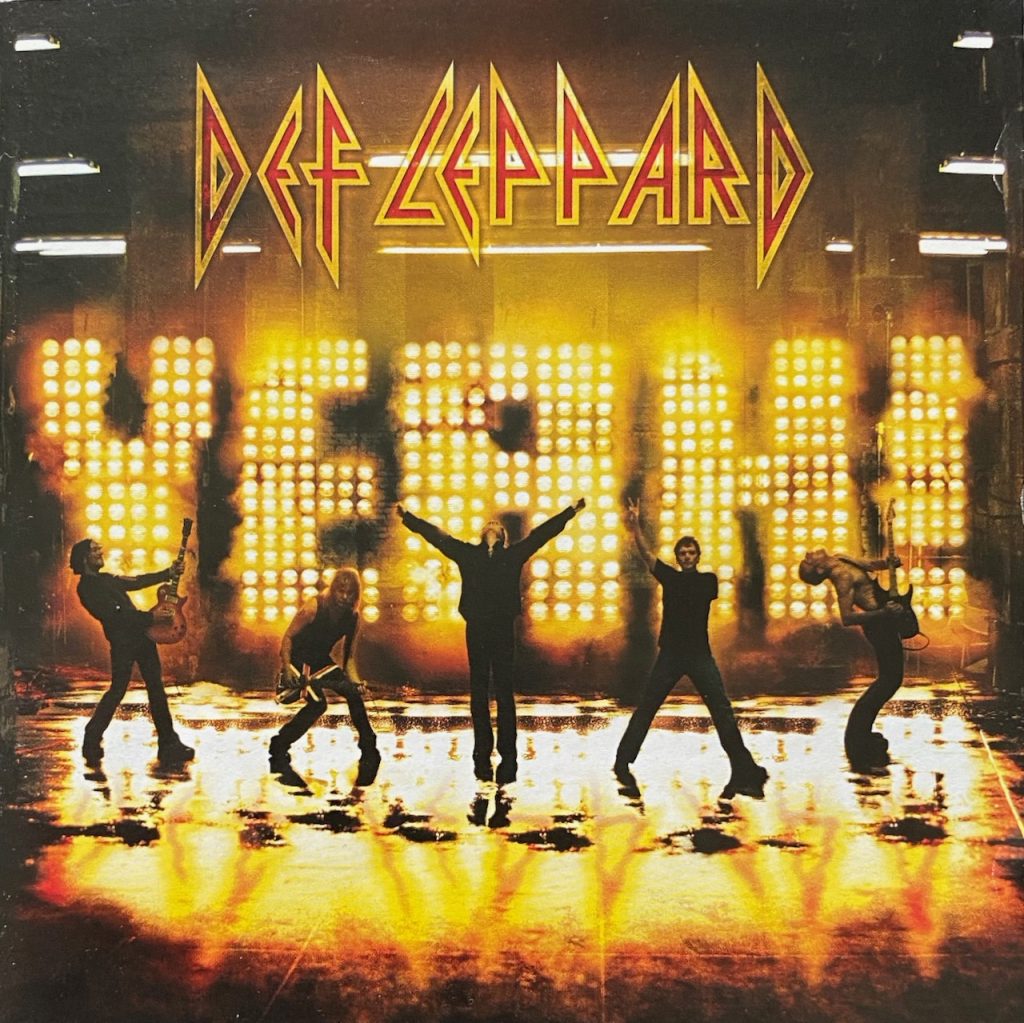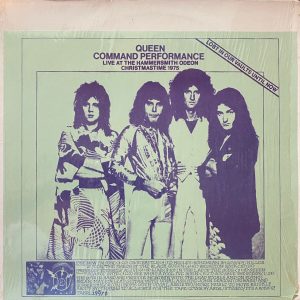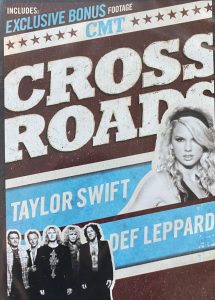
Def Leppard’s ‘Yeah!’ Album Review (2006) – A Throwback to Glam Rock Glory
In the rock universe, Def Leppard stands out as a quintessential 70s band, embodying the glam rock influences of that era in their musical style. Their passion for this genre even shines through in side projects like Cybernauts. It was only fitting that Def Leppard embraced the idea of a covers album—something frontman Joe Elliott had long envisioned. The label’s request came as a pleasant surprise, making it easy for the band to dive into the project.
The band set some ground rules for their covers: songs had to be hits from before they signed their record deal and, in an initial effort to maintain a British integrity to the album, aimed to cover British releases. However, as we’ll discover in future reviews, they didn’t rigidly stick to this guideline. Each member submitted a list of 20 tracks, yielding a robust selection of 100 songs—a treasure trove waiting to be sifted through. Miraculously, this lead to a fascinating mix of artists and tracks. Although cover albums often don’t land high on my list of favorites, ‘Yeah!’ has earned its place as a standout.
Released on May 23, 2006, the album made a decent splash on the charts, peaking at number 16 on the Billboard 200. The singles saw a variety of achievements, but the specifics of their rankings escape me. What truly impresses about this record is its unique packaging. Inside, each band member presents artwork recreating iconic images from legendary 70s albums: Rick Savage as Freddie Mercury from Queen II, Vivian Campbell as Marc Bolan from T. Rex’s Electric Warrior, Joe Elliott as David Bowie from The Rise and Fall of Ziggy Stardust, and more. The thoughtful incorporation of Def Leppard’s original triangle logo, featuring light effects reminiscent of Pink Floyd’s Dark Side of the Moon, raises the standard for album packaging. It’s A+ material.
Now, let’s delve into the music and see if it lives up to the artistry surrounding it. A noteworthy aspect of these covers is the band’s adherence to the original sound, which, ordinarily, is not my preference. In this case, however, it clicks perfectly with Def Leppard’s established sound. Take T. Rex’s “20th Century Boy”—the band flawlessly captures the essence, maintaining the song’s spirit while layering it with their distinct guitar work and harmonies. It’s an electrifying opener that sets the stage.
Next, we have a rendition of David Essex’s “Rock On” that eschews any comparison to Michael Damian’s version. Def Leppard sticks to the original’s framework, creating a highlight of the album. Rick Savage shines in this track, showcasing his impressive bass skills with deep grooves and seductive guitar riffs. The band has frequently performed this live, which speaks volumes about its popularity.
Shifting gears, the cover of The Nerves’ “Hanging on the Telephone” brings a punk-infused energy that fires up the senses. Though most associate the song with Blondie, the band’s version propels the track with fierce guitar riffs and energetic drumming, highlighting Elliott’s dynamic vocal delivery.
The Kinks’ “Waterloo Sunset” makes an appearance here, previously featured on the UK edition of the ‘Best of Def Leppard’ compilation. Joe’s evocative vocals capture the required melancholic essence, with the instrumentation offering the right flair to complement the original vibe. This track stands as solid craftsmanship.
Then there’s The Sweet’s “Hell Raiser,” a powerful anthem that will rattle your speakers. Joe’s explosive opening, paired with Justin Hawkins from The Darkness on backing vocals, amplifies the thrill factor. It’s arguably my favorite of the album.
However, not all tracks hit the mark. The cover of ELO’s “10538 Overture” feels out of place, even if the execution is technically sound. There’s a disconnect that leaves it lacking the vibrancy of the preceding song. Similarly, “Street Life” by Roxy Music doesn’t resonate due to its upbeat font, failing to ignite the passion Def Leppard typically elicits.
As expected, a David Bowie cover surfaces next with “Drive-In Saturday.” Unfortunately, it comes off as somewhat cheesy, contrasting sharply with the album’s stronger opening. The lull continues with Free’s “A Little Bit of Love,” which drags without much excitement, leaving much to be desired.
Yet, there’s redemption with Mott the Hoople’s “The Golden Age of Rock ‘n’ Roll.” Ian Hunter lends his voice to the opening, and when Def Leppard joins in, you sense something exceptional. With a captivating piano intro and an infectious guitar riff, Joe and Rick lead a powerhouse of a song.
Badfinger’s “No Matter What” returns here too, and initially, I found it somewhat standard. Yet, in this new context, it feels revitalized, showcasing growth within the band’s interpretation.
Moving forward, “He’s Gonna Step On You Again” by John Kongos delivers killer guitar tones, highlighted by Phil and Vivian tearing it up. Joe’s assertive vocal delivery brings glam rock to the forefront, resulting in a track that slays.
Thin Lizzy’s “Don’t Believe a Word” is next, and it’s hard to mess up a classic this strong. The band maintains the integrity of the song while showcasing outstanding guitar work—a delightful tribute.
Finally, we conclude with Faces’ “Stay With Me,” brilliantly delivered by Phil Collen. His passionate, punk-like vocals bring a refreshing energy, making it an exhilarating finale to the album.
Track Listing includes:
– 20th Century Boy – Keeper
– Rock On – Keeper
– Hanging on the Telephone – Keeper
– Waterloo Sunset – Keeper
– Hell Raiser – Keeper
– 10538 Overture – Delete
– Street Life – Delete
– Drive in Saturday – Delete
– Little Bit of Love – Delete
– The Golden Age of Rock ‘N’ Roll – Keeper
– No Matter What – Keeper
– He’s Gonna Step On You Again – Keeper
– Don’t Believe a Word – Keeper
– Stay With Me – Keeper
With a score of 9.5 out of 14 tracks, equating to 68%, this album triumphs due to its exceptional song choices that skip the more expected selections. The musicianship reflects a genuine reverence for their roots, executed meticulously. Despite featuring some disappointments in the middle, the album’s energetic bookends—“Hell Raiser,” “The Golden Age of Rock ‘n’ Roll,” and “Stay With Me”—leave a lasting impression. “Rock On” stands out as a gem worth revisiting.
Overall, my assessment lands at a solid 3.5 out of 5 stars. If you haven’t given it a listen, it’s certainly worth your time.
Next in line, we’ll explore Def Leppard’s ‘Yeah! Bonus CD with Backstage Interviews’ from 2006.






